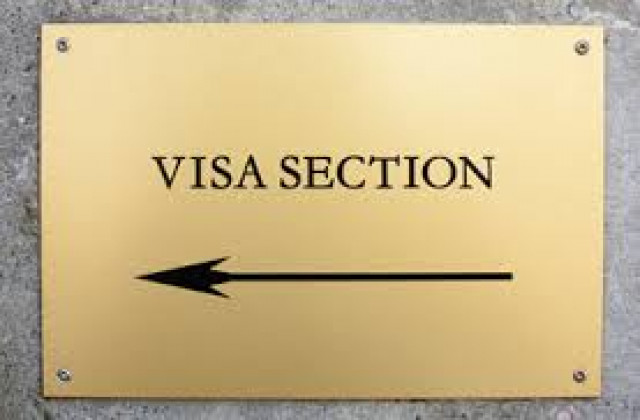US tightens rules for visa-free visits after Paris attacks
US to tighten security procedures for its visa waiver program for visitors from friendly countries

PHOTO: REUTERS
The United States already screens visa applicants from war zones carefully, but will now ask more questions of travelers from countries eligible for visa waivers.
Washington will also seek greater cooperation and intelligence sharing with allied countries to try to intercept "foreign fighters" returning from places like Syria.
Obama visits Paris attack site, pays tribute to victims
This month's deadly attacks in Paris are thought to have been the work of European Muslims trained and radicalised by the Islamic State group in its Syrian and Iraqi bases.
As French or Belgian citizens, they could have flown to the United States by registering with the ESTA visa waiver system and avoided the close scrutiny imposed on refugees.
But travelers will now be required to declare previous visits to any country the US Department of Homeland Security has deemed a "terrorist safe haven."
Their registrations will also come under greater scrutiny from US agencies, which in turn will work in closer cooperation with allied police and intelligence outfits.
Speaking in Paris, White House Deputy National Security Advisor Ben Rhodes said the Department of Homeland Security had tightened some rules even before the Paris attacks and would now act quickly.
"We've always been concerned about the fact that there is a significant higher flow of foreign fighters into and out of Europe than the United States," he said.
"We benefit in some respects from geography and in some respects from simply having a population that has not had the same desire to join the effort in Syria under Islamic State.
"So we see a much more significant threat of foreign fighters coming into Europe than the numbers of foreign fighters coming into the United States."
Britain's Gatwick Airport evacuates one terminal as precautionary measure
US federal agents will also work with the authorities in countries whose citizens are eligible for visa-free travel to help them collect biometric data, officials said.
And US "foreign fighter surge teams" will deploy to areas where there is a concern that jihadists returning from war zones may seek onward travel to the United States.
Homeland Security Secretary Jeh Johnson also urged Congress to fund greater pre-screening of flight passengers and tougher airport security controls.
"This means deploying our US Customs officials to foreign airports with direct flights to the United States," he said, adding that 15 overseas airports already permit this.
White House spokesman Josh Earnest called on Congress to act quickly to pass funding measures to allow an expansion and deepening of intelligence and screening programs.
"If there are steps that we can take that will improve information sharing, that would obviously be an important part of more carefully vetting individuals," he said.
The visa waiver program applies to 38 countries, largely US allies and relatively stable developed democracies whose citizens have hitherto been seen as posing little threat.
Earnest said 20 million people a year visit the United States under the program and represent a boon to the US economy through tourist spending and building business ties.
Belgian scheme tries to nip radicalisation in the bud
But he complained that President Barack Obama's Republican opponents in Congress have focused on halting the arrival of Syrian refugees rather than reforming the waiver program.
Shortly after the White House announcement, Democratic Senator Chris Murphy vowed to move quickly to promote the reforms that Homeland Security is seeking.



















COMMENTS
Comments are moderated and generally will be posted if they are on-topic and not abusive.
For more information, please see our Comments FAQ